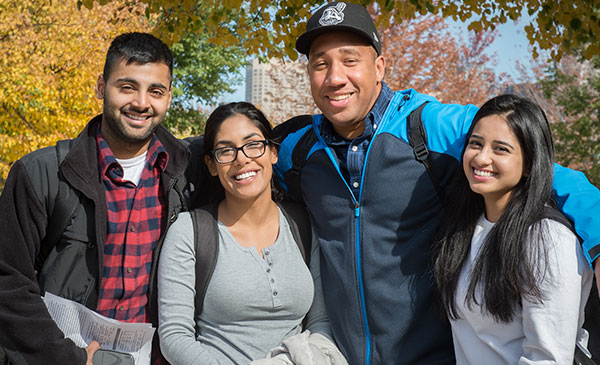Internships
Diversity Community Engagement Program Internship
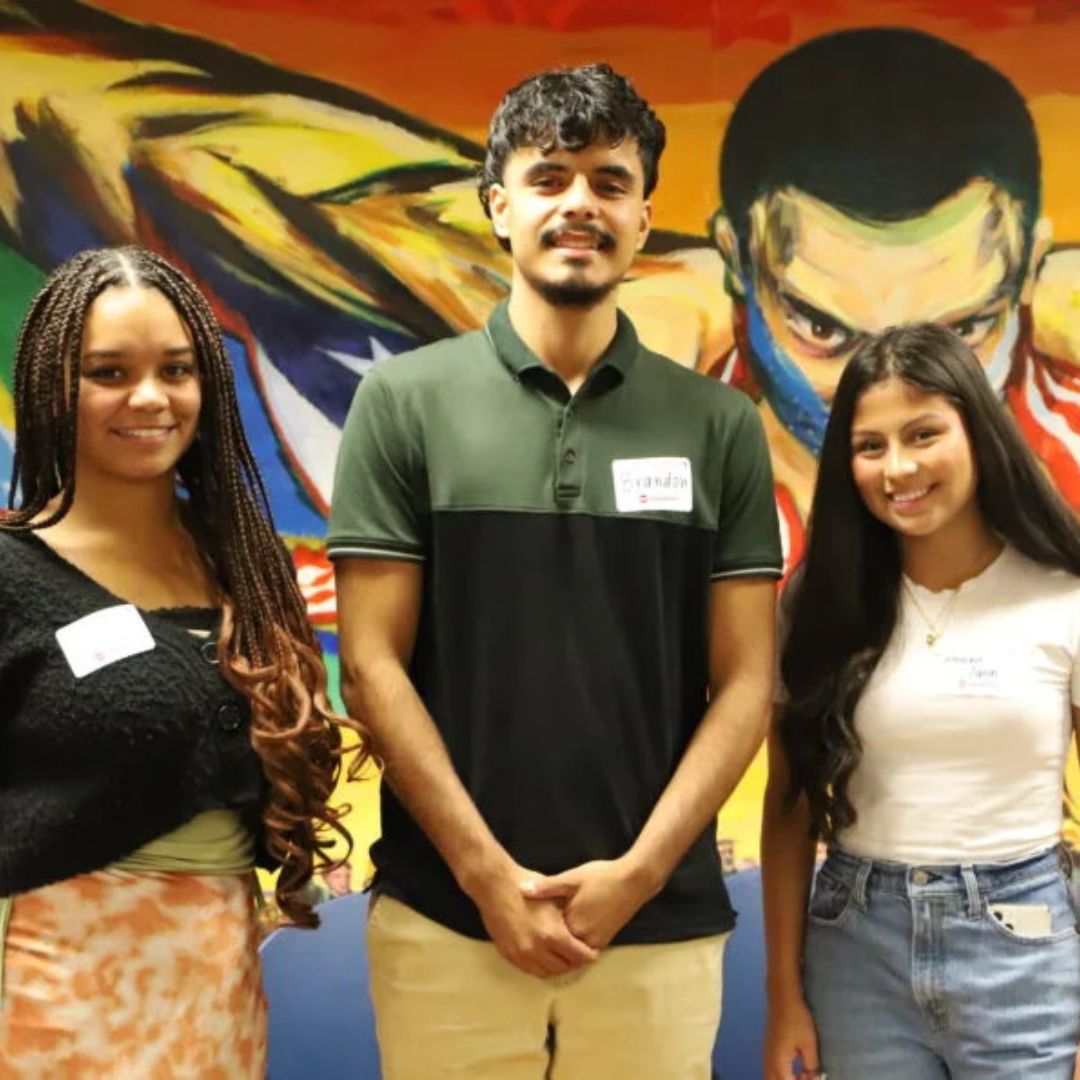
Are you an undergraduate student interested in working with the Women’s Leadership and Resource Center / Campus Advocacy Network, one of our sibling cultural centers, or the Office of Diversity?
The Diversity Community Engagement Program (DCEP) is designed to expand students’ career readiness and community engagement skills through an internship hosted by the Office of Diversity, Equity, & Engagement; its seven Centers for Cultural Understanding and Social Change (CCUSC); and their community partners.
By participating in the DCEP internship, students will build professional competencies and relationships, develop decision-making skills, gain knowledge on the purpose and value of academic and community partnerships, and develop interpersonal skills that can transfer to their future careers. Students will also identify pressing social issues impacting local communities and expand their capacity while learning of relevant solutions to community needs.
Apply here for Spring 2025!
DCEP Part 2
For Spring 2025, WLRC is looking for students who want to work with us to develop programs and events to support pregnant and parenting students and/or raise awareness of sexual assault and gender-based violence prevention. If you have relevant experience or interest in either of these areas, please tell us about it in your application.
- Length: One semester
- Hours: 10 hours per week
- Compensation/Course Credit: Interns will receive compensation and/or may be eligible to receive academic credit.
- Eligibility: All UIC undergraduate students are eligible to apply. Federal Work Study and DACA students are encouraged to apply.
- Application Deadline: Applications for Spring 2025 are due by 9am on Monday, November 25, 2024!
Undergraduate & Graduate Internships
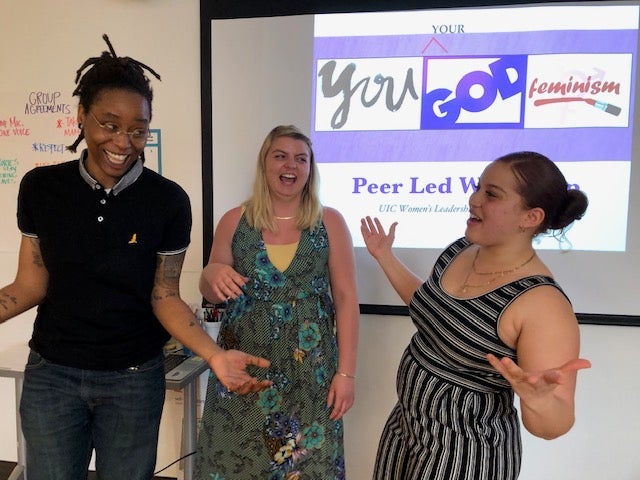
The Women’s Leadership and Resource Center also provides internship opportunities for undergraduate and graduate students throughout the year in the following categories:
- Research [PDF]
- Advocacy [PDF]
- Education and Programming [PDF]
- Communications and Outreach [PDF]
How to Apply
We accept applications on a rolling basis, dependent on department priorities, project needs, course credit options, and funding availability.
To apply, email the following to wlrc@uic.edu with your name and the position title in the subject line:
- Brief letter outlining your qualifications and interest in the position
- Brief description of your academic internship program, if you are applying through one
- Resume or CV
- List of days and hours you are available to work between the hours of 9am – 5pm CST, Monday – Friday
Need assistance?
To learn more about on- and off-campus jobs and internships and get help with your resume, cover letters, and interview prep, visit
Student employment resources
Flames Internship Grant
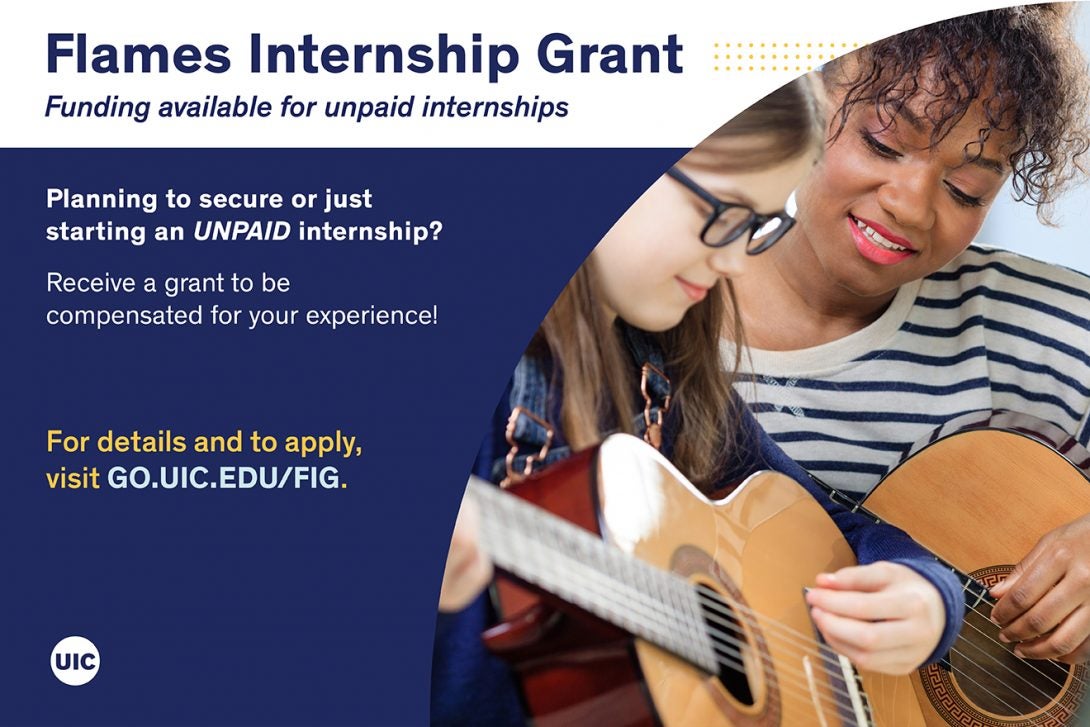
Students planning to secure or start an unpaid internship can apply for the Flames Internship Grant! Through this UIC-funded internship program, students can receive a stipend for their unpaid internship in any field or industry. Get the details and apply!
If you have questions about the FIG program, please contact Jean Riordan, Executive Director of Career Services, at jriordan@uic.edu or Allen Womble, Director of High Impact Student Engagement, at awomble@uic.edu.
Testimonials
Thanks to the Graduate College’s Public Service Graduate Internship Award, WLRC was fortunate to host a wonderful group of interns in the summer of 2020. Read their reflections of their work with us:
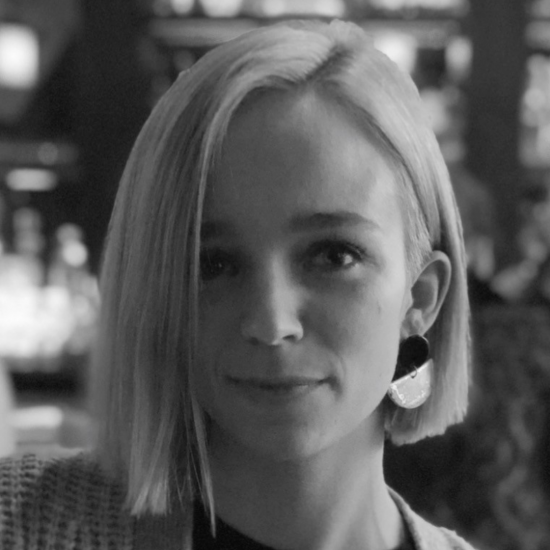
During this time of multiple pandemics–COVID-19, an economic collapse, and visceral anti-Black violence enhanced by the state–the value of the center’s services cannot be overstated.
| PhD Student, Sociology
Meghan Daniel
Meghan Daniel
Over the course of my Public Service Graduate Internship at the Women’s Leadership Resource Center / Campus Advocacy Network (WLRC/CAN), I dove into decades of the center’s archival history. Now situated as one of UIC’s seven Centers for Cultural Understanding and Social Change, WLRC/CAN was born in the early 1990s as the Office of Women’s Affairs. Though much has changed at the center, the university, and in the world since, the role of a university women’s center in these times is as critical as ever.
Staff members have worked tirelessly on leadership development, trainings, and political education on issues of gender justice, racial justice, bystander intervention, sexual assault, domestic violence, and stalking. They have built on, grounded in, and connected with decades of feminist activism in Chicago and beyond.
WLRC/CAN provides programming and political education that explicitly ties gender violence to state violence, ableism, xenophobia, anti-Black racism, the violence of the medical industrial complex, settler colonialism, and more. Staff members develop leaders, ground workshop attendees in history, and equip us for the present, giving us the language and critical analysis we desperately need for the troubled times we are living in. Importantly, this happens across university hierarchies of undergraduate and graduate students, faculty, and staff, and connects UIC to the broader communities to which we are responsible. Take, for example, domestic violence programming that includes letter writing campaigns to criminalized survivors of abuse incarcerated in jails or by ICE. For years, the center has leveraged university resources and unique expertise to host art exhibits, speaker sessions, and teach ins.
In addition to language, the center provides quiet. Solace. Listening. Whether it be space for writing, breathing, or being in the silent company of friends, the center’s doors are open, albeit now virtually, to gather in solidarity, to share a meal, or to exchange ideas.
Finally, during this time of multiple pandemics – COVID-19, an economic collapse, and visceral anti-Black violence enhanced by the state – the value of the center’s services cannot be overstated. Statistics on increased feelings of isolation, increased rates of domestic violence, parental exhaustion, food scarcity, and increased rates family violence abound. If you are experiencing this, the highly trained and compassionate staff members at the center at there to help. If you know someone who is, and have been trying and trying and trying to find resources for them, call CAN.
My research found that the center’s history is one of resistance and of service. The role of a university women’s center today is to resist the onslaught of white supremacist violence, to resist the neoliberal push to individuation and isolation, to resist white feminism, and to resist patriarchal violence in any form, whether it be in the home, in the workplace, or at the university. And the center does this in service to its students and to the broader communities to which it is responsible, be it in the cities or towns in which it is located, nationally, or globally. The Women’s Leadership and Resource Center and Campus Advocacy Center at UIC occupies a beautiful and necessary nexus of resistance and service, and I feel excited to witness its 30th Anniversary Celebration this upcoming year.
—
Meghan Daniel is a PhD candidate in Sociology at UIC, where she teaches, writes, and conducts research about reproductive justice, social movements, and state violence. She is a Support Coordinator with Chicago Abortion Fund, an organization that provides financial, logistical, and emotional support to people seeking abortion care. She has attended WLRC programming as a learner and teacher since coming to UIC in 2014, and interned with the center in summer 2020 to research its longstanding history at the university and in the city of Chicago.

This internship changed my human view about social construction, racism, patriarchy, and institutions, and how they perpetuate violence against women.
| PhD Student, Nursing
Annanda Batista
Annanda Batista
This internship changed my human view about social construction, racism, patriarchy, and institutions, and how they perpetuate violence against women. Also, I could better understand how capitalism and white supremacy affect violence against Latinas in the U.S., and how women survivors of violence can use many forms, tools, ways, and methodologies of healing. This opportunity was more than an academic experience. It was a life concept deconstruction. I understood that gender-based violence in communities of color should be given more attention to solve, prevent, and heal these women because they do not share the same class or race backgrounds of white women–they experience violence differently. Finally, I understood how vital intersectionality is to help us as scientists fully understand power systems and see the full picture of intersecting discrimination types to understand and effectively address the complexity of gender-based violence.
—
Annanda Batista is a nurse who graduated from the Federal University of Paraiba, Brazil. Currently, she is a Ph.D. student at UIC’s College of Nursing and a Doctoral Fellow sponsored by the Graduate College University Fellowship. Her background experience includes maternal-infant health promotion and self-management support for youth chronic health conditions. Annanda’s internship project focused on developing a resource guide for U.S. women of color to help promote the process of healing from gender-based violence.
